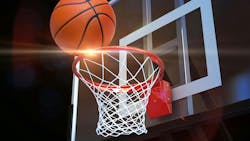The National Labor Relations Board (NLRB) is once again pushing the envelope to make sure that more college athletes find themselves eligible to join unions, even in the absence of receiving financial recompense that normally comes in the form of athletic scholarships.
This action is seen as “an exceptional development that could dramatically change collegiate sports in the United States,” according to attorneys James A. Holt and Cori M. Smith of the Reed Smith law firm, which mirror the views of other labor law attorneys concerning its significance.
On Feb. 5, the regional director for the NLRB’s Region 1, Laura Sacks, chose to recognize the 15 players who make up the Dartmouth College men’s varsity basketball team as employees who have a right to unionize under the National Labor Relations Act (NLRA). As a result, the players are now eligible to vote on whether they want to be represented by the Service Employees International Union (SEIU) Local 560, which is seeking to organize them for collective bargaining purposes.
If the regional director’s decision stands, and a majority of the eligible players choose to vote in favor of joining the SEIU local, they will create the first-ever union of NCAA athletes, although others across the country are currently in the process of attempting to secure the same right.
The crux of the Dartmouth College decision was the determination by NLRB Regional Director Sacks that the “basketball players are employees” given that “Dartmouth has the right to control the work performed by the Dartmouth men’s basketball team, and the players perform work in exchange for compensation.”
Sacks found it irrelevant that Dartmouth does not provide athletic scholarships because the players receive other forms of compensation. She said these come in the form of “early read” for college admissions, free tickets to attend games, receiving free equipment and apparel valued at more than $1,000 a player per year, as well as lodging and meals along with other “fringe benefits” that are said to include academic support, career development, strength and conditioning training, access to sports medicine services, and integrative health and wellness programs.
Sacks also said she took into due consideration other external factors that reached beyond the direct relationship between the institution and the athletes, pointing to such things as the public celebrity status that students gain from playing Division I and Ivy League basketball on television. Sacks also pointed out that major media outlets pay the college for the rights to broadcast and distribute videos of the Dartmouth men’s basketball games.
NLRB’s Full Court Press
In addition, Sacks went so far as to reference the fact that Dartmouth’s athletic department has its own business office, along with separate fundraising, marketing and brand management departments, revealing that the business, marketing and revenue-generating operations within a higher education institution were considered to be significant in helping Sacks reach her decision, Holt and Smith believe.
In another case pending before the NLRB’s Los Angeles office, against the University of Southern California (USC), the PAC-12 Conference and the NCAA, that regional director is expected to approve a requested determination that the USC’s men’s football and basketball teams and the women’s basketball team in the near future.
In that and other such cases that have arisen over the years, the crux of the issue has been that the players receive employment-like compensation in the form of valuable scholarships, while the institutions they play for like USC generate substantial revenues from broadcast rights to the games. Although exact numbers are not available, it is hard to imagine that Dartmouth College generates this kind of money from its men’s basketball program, and certainly nothing like what USC does.
In recent years, the board has staked out a position holding that many college athletes can be considered employees under labor law, but removing the issue of scholarships as a form of compensation, the Dartmouth College decision signifies a significant policy shift by the NLRB, according to legal observers.
In 2021, General Counsel Jennifer Abruzzo issued an enforcement guidance memo to all the NLRB regional directors where she declared that they should cease referring to college basketball and football players as student-athletes. “I have chosen not to use that term in this memorandum because the term was created to deprive those individuals of workplace protections,” Abruzzo asserted.
Dartmouth is reportedly appealing Sacks’ determination to the full board, but the majority of the Democrat majority members can be expected to back her play. That decision could be appealed to a federal appeals court (and perhaps all the way to the Supreme Court).
However, if the regional director’s decision stands, and a majority of the eligible players choose to vote in favor of joining the SEIU local, they will create the first-ever union of student athletes—or oppressed proletarians in Jennifer Abruzzo’s approved appellation—in the United States.
About the Author

David Sparkman
founding editor
David Sparkman is founding editor of ACWI Advance (www.acwi.org), the newsletter of the American Chain of Warehouses Inc. He also heads David Sparkman Consulting, a Washington D.C. area public relations and communications firm. Prior to these he was director of industry relations for the International Warehouse Logistics Association. Sparkman has also been a freelance writer, specializing in logistics and freight transportation. He has served as vice president of communications for the American Moving and Storage Association, director of communications for the National Private Truck Council, and for two decades with American Trucking Associations on its weekly newspaper, Transport Topics.
